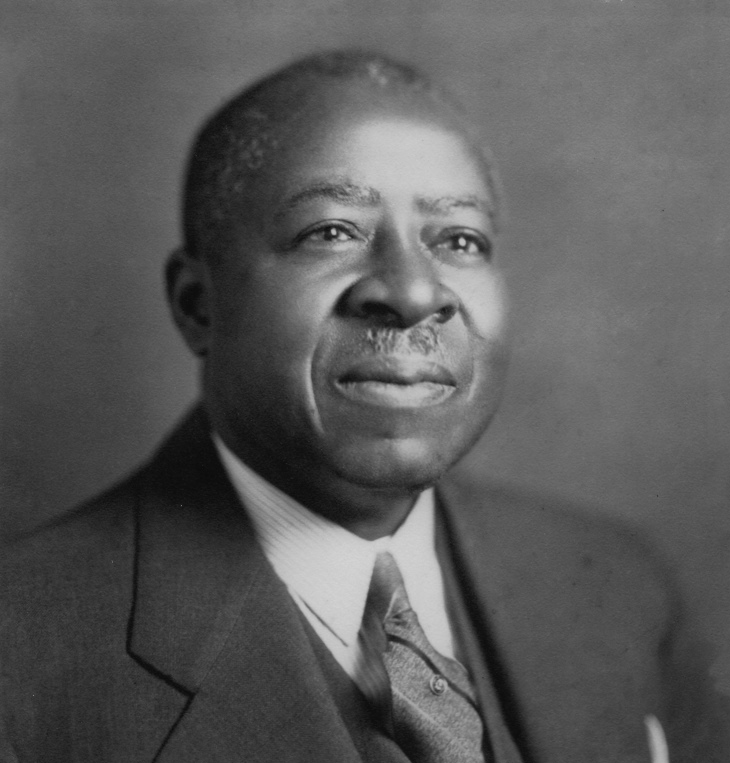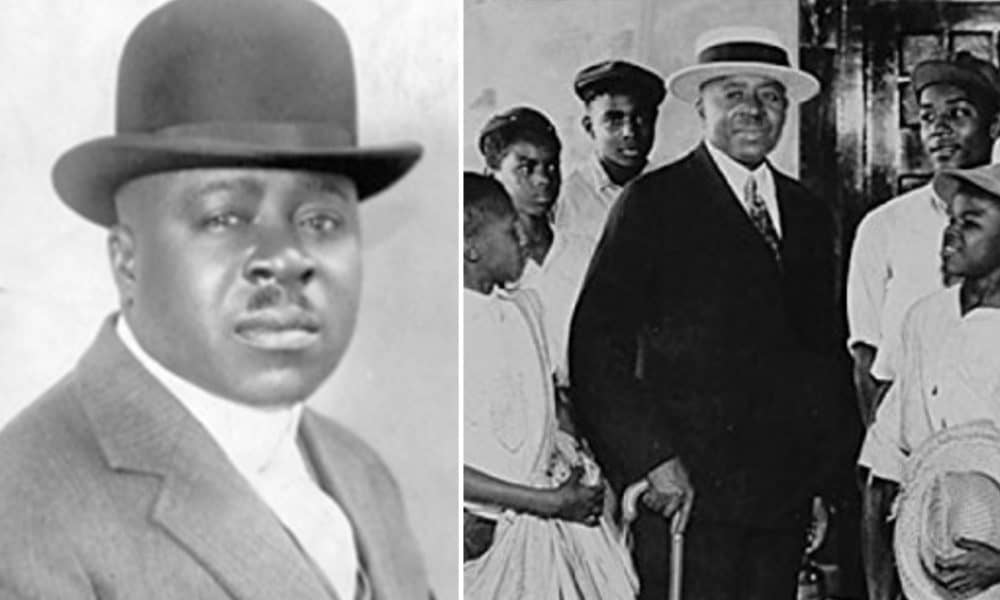Robert Abbott
Robert Abbott (1870–1940) was an influential figure in the early 20th-century American civil rights movement. His contributions as a journalist, editor, and activist played a significant role in advocating for the rights of African Americans during a tumultuous period of racial inequality and segregation in the United States. In this 1500-word essay, we will delve into Abbott's life, his impact on civil rights, and his legacy. Born on November 24, 1870, in St. Simons Island, Georgia, Robert Abbott was the son of former slaves. He grew up witnessing the injustices of racial segregation and discrimination in the post-Civil War South. Despite facing numerous obstacles, Abbott was determined to pursue education. He attended Hampton Institute (now Hampton University) and later earned his law degree from Kent College of Law in Chicago in 1899.
Born on November 24, 1870, in St. Simons Island, Georgia, Robert Abbott was the son of former slaves. He grew up witnessing the injustices of racial segregation and discrimination in the post-Civil War South. Despite facing numerous obstacles, Abbott was determined to pursue education. He attended Hampton Institute (now Hampton University) and later earned his law degree from Kent College of Law in Chicago in 1899.
Abbott's journey to becoming a prominent civil rights advocate began when he moved to Chicago, a city that was experiencing significant demographic shifts due to the Great Migration. African Americans were migrating from the South to urban centers like Chicago in search of better economic opportunities and to escape the harsh realities of Jim Crow laws.
In 1905, Abbott founded the Chicago Defender, a weekly newspaper aimed at African American readers. The Defender quickly became one of the most influential Black newspapers in the country. Abbott used the paper as a platform to address issues affecting African Americans, including lynching, segregation, and disenfranchisement. One of Abbott's most notable campaigns through the Chicago Defender was his efforts to challenge the prevailing narrative of white supremacy. He used the paper to highlight the achievements and contributions of African Americans, countering the racist stereotypes perpetuated by mainstream media. Abbott believed in the power of positive representation and worked tirelessly to uplift the Black community through his newspaper.
One of Abbott's most notable campaigns through the Chicago Defender was his efforts to challenge the prevailing narrative of white supremacy. He used the paper to highlight the achievements and contributions of African Americans, countering the racist stereotypes perpetuated by mainstream media. Abbott believed in the power of positive representation and worked tirelessly to uplift the Black community through his newspaper.
Abbott's commitment to civil rights extended beyond journalism. He was actively involved in various civil rights organizations and initiatives, including the National Association for the Advancement of Colored People (NAACP) and the National Urban League. Abbott understood the importance of collective action in the fight for equality and worked collaboratively with other activists and organizations to advance the cause of civil rights. One of Abbott's most significant contributions to the civil rights movement was his role in the Great Migration. Through the Chicago Defender, Abbott encouraged African Americans to migrate to northern cities, where they could find better job opportunities and escape the violence and oppression of the Jim Crow South. The Defender served as a guide for migrants, providing information about housing, employment, and community resources in cities like Chicago, Detroit, and New York.
One of Abbott's most significant contributions to the civil rights movement was his role in the Great Migration. Through the Chicago Defender, Abbott encouraged African Americans to migrate to northern cities, where they could find better job opportunities and escape the violence and oppression of the Jim Crow South. The Defender served as a guide for migrants, providing information about housing, employment, and community resources in cities like Chicago, Detroit, and New York.
Abbott's advocacy for the Great Migration had a profound impact on the demographic and cultural landscape of the United States. Millions of African Americans moved from rural southern towns to urban centers, transforming the economic and social dynamics of cities across the country. The Great Migration laid the foundation for the development of vibrant African American communities and contributed to the growth of the civil rights movement.
Despite facing opposition from white supremacists and segregationists, Abbott remained steadfast in his commitment to racial equality. He faced numerous challenges throughout his career, including censorship, harassment, and even violence. However, Abbott refused to be silenced and continued to use the Chicago Defender as a platform for social change.
Abbott's legacy as a pioneering civil rights leader continues to resonate today. His fearless advocacy for racial justice and equality laid the groundwork for future generations of activists and leaders. The Chicago Defender, under Abbott's guidance, played a crucial role in shaping public opinion and mobilizing support for the civil rights movement.
In addition to his activism, Abbott was also a trailblazer in the field of journalism. He revolutionized the newspaper industry by creating a platform for African American voices and perspectives at a time when mainstream media was largely dominated by white-owned publications. Abbott's commitment to truth, integrity, and social justice set a standard for journalistic excellence that continues to inspire journalists today. In conclusion, Robert Abbott was a visionary leader whose contributions to the civil rights movement were instrumental in challenging racial inequality and injustice in the United States. Through his work as a journalist, editor, and activist, Abbott empowered African Americans to assert their rights and demand equality. His legacy serves as a reminder of the power of the press and the importance of speaking truth to power in the pursuit of social change. Robert Abbott's impact on civil rights and journalism will be remembered for generations to come.
In conclusion, Robert Abbott was a visionary leader whose contributions to the civil rights movement were instrumental in challenging racial inequality and injustice in the United States. Through his work as a journalist, editor, and activist, Abbott empowered African Americans to assert their rights and demand equality. His legacy serves as a reminder of the power of the press and the importance of speaking truth to power in the pursuit of social change. Robert Abbott's impact on civil rights and journalism will be remembered for generations to come.
Abbott's impact on civil rights and journalism extended beyond his lifetime. After his passing in 1940, the Chicago Defender continued to be a beacon of hope and a voice for the African American community. Under the leadership of successive editors, the newspaper remained committed to its mission of advocating for racial equality and social justice.
During the civil rights movement of the 1950s and 1960s, the Chicago Defender played a pivotal role in shaping public opinion and mobilizing support for key initiatives such as school desegregation, voting rights, and the end of racial discrimination in housing and employment. The newspaper provided comprehensive coverage of major events such as the Montgomery Bus Boycott, the March on Washington, and the Selma to Montgomery marches, amplifying the voices of activists and community leaders fighting for change.
In the decades following the civil rights movement, the Chicago Defender continued to evolve, adapting to the changing needs of its readership and the shifting media landscape. While the newspaper faced challenges such as declining circulation and competition from digital media, it remained a trusted source of news and information for African Americans in Chicago and beyond. In recent years, the Chicago Defender has undergone a digital transformation, expanding its online presence and engaging with audiences through social media platforms and digital storytelling. The newspaper remains committed to its legacy of advocacy journalism, tackling issues such as police brutality, economic inequality, and systemic racism.
In recent years, the Chicago Defender has undergone a digital transformation, expanding its online presence and engaging with audiences through social media platforms and digital storytelling. The newspaper remains committed to its legacy of advocacy journalism, tackling issues such as police brutality, economic inequality, and systemic racism.
The legacy of Robert Abbott and the Chicago Defender serves as a reminder of the power of journalism to effect positive change in society. Abbott's vision of a newspaper that champions the rights and dignity of all people continues to inspire journalists, activists, and readers around the world.
In conclusion, Robert Abbott's contributions to civil rights and journalism have left an indelible mark on American history. His fearless advocacy for racial equality and social justice paved the way for future generations of activists and journalists to continue the fight for a more inclusive and equitable society. As we reflect on Abbott's legacy, let us remember the importance of speaking truth to power and standing up for what is right, even in the face of adversity.














































